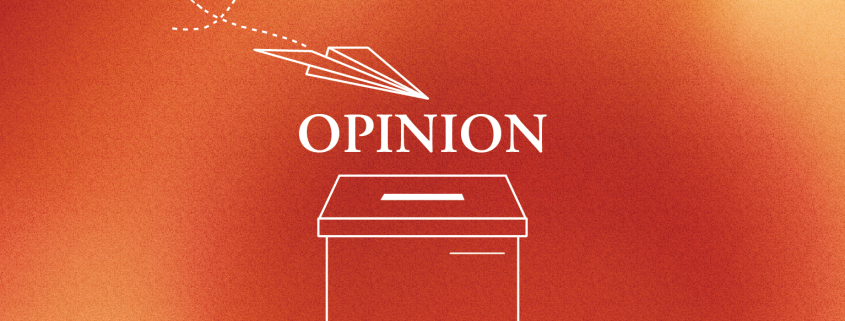Craft as catharsis: writing allows us to reclaim the past
It’s always baffling how as schooling goes on, seniority in academic course load does not always equate to a higher level of difficulty. Rather, the classes I’ve taken senior year of college provide an outlet for interests I’ve previously left untouched. The content of my upper division electives deviate from the hard-lined structure that my lower required classes had, giving me more wiggle room for exploration. My course schedule is now filled with an array of different subjects that have ranged from Theatrical Film Symposium to a fashion class to a music class — the latter two even applying to my major. The opportunity for greater exploration and freedom is seemingly most present in the essays I’ve been asked to write.
My WRIT 340 professor told us how in WRIT 150, we learn to write for college through a structure fabricated by those in higher academia. In her class, she countered, she would teach us how to write for life. While I initially believed that to be relevant to the first assignment we ever wrote (an OP-ED!), I realized how important it was to reflect on my past as I worked my way through my third essay in the class: a personal narrative essay.
In “On Keeping a Notebook,” Joan Didion discussed how writers can’t help but write things down, a compulsion not shared by all. Maybe I’m biased, but this sentiment seems to resonate for most.
Our presence at this university alone should suffice in proving our ability to write essays, to compute, to be capable of abstract, analytical thought. Reckoning with ourselves, however, is a much bigger task, one that serves us and necessitates undertaking sooner rather than later.
I mean, I know how to write. I was a voracious reader as a kid. My parents often lovingly reminisced on the days I used to come down for school, spooning cereal into my mouth with one hand and creasing the pages of a book with the other (before those damn iPhones!). I’ve been told by teachers, friends and family alike my whole life that I’m a talented writer, leaving me with quite the ego. An ego I likely wouldn’t feel a compulsion to apologize for if I were a man. But I digress.
That aforementioned ego, unfortunately, isn’t great at allowing me to feel my emotions to the deepest level. It doesn’t help that I’m a burgeoning comedy writer (The Sack of Troy, hello!) and I often shroud vulnerability with jokes meant to deter people from ever digging deeper into my personality. I’m self-aware to a fault.
Writing about some of the worst parts of my college experience — caused by some of the worst people I’ve ever met who helped make me into the worst version of myself — was not easy. I was pushed outside of my comfort zone as a writer and as a person. It wasn’t one of my best works as a writer, it wasn’t one of my best grades and I’m pretty sure I forgot some parts of the prompt. But it helped me, at long last, unpack some of the negative experiences I’ve had.
Opening ourselves up — even if just to a professor’s eyes who we won’t have to properly acknowledge after they see us spill our hearts — offers some sense of catharsis. Writing allows us to reclaim the narratives of our pasts. We can go to therapy and talk to friends, but sometimes there’s only so much we feel we can say. By shouting, or scribbling, into the void, we can find solace in stories that only we know best.
Writing about my coming of age, the poisonous way I used to speak to myself and the manipulative people who came my way allowed a proper reckoning in a way I don’t think I could have achieved with any other mode of communication. It’s something I’ve also learned to do in my journal. It’s gained purpose aside from recording little details of my day-to-day life that would slip through the cracks if not permanently stored with black ink onto a page.
I do posit, however, that as writers we shouldn’t have to bare ourselves for a story. As fellow columnist Au Chung described, having to exploit narratives — especially as young people and especially for marginalized communities — is something we feel compelled to do to make stories more emotional. We have become voyeurs of others and thus feel the need to bear ourselves, to exploit our traumatic experiences for content.
My fellow Sack writers and I often joke about exploiting our lives for content. But not everything must be content, something creatives in Los Angeles don’t always seem to remember. Writing for no audience about some of our vulnerable experiences can provide us a means of processing, of allowing ourselves to be vulnerable, first with ourselves and eventually, one day, others.
Communication is required by every line of work, something I like to remind ridiculers of the major. Vulnerability, a willingness to advocate for ourselves, to show the ugly parts of ourselves, is one of the greatest communication skills we possess, but too often lack. Through expository writing, especially if for our eyes only, perhaps we stand a chance at regaining it.

